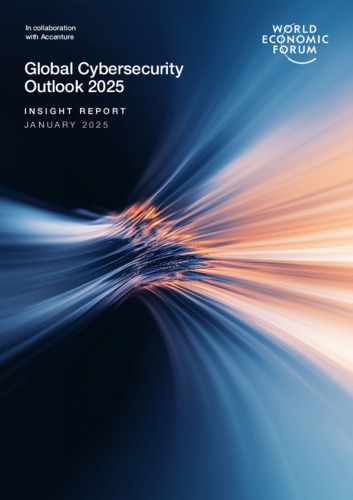The World Economic Forum’s Global Cybersecurity Outlook 2025 report, released today, paints a stark picture of the escalating complexity in the cybersecurity landscape, underscoring its significant implications for businesses and nations alike. Key drivers behind this growing challenge include rapid technological advancements, geopolitical tensions, supply chain vulnerabilities, regulatory fragmentation, and a widening cybersecurity skills gap.
As emerging technologies like AI reshape industries, the report highlights a critical paradox: while 66 percent of organizations expect AI to greatly influence cybersecurity, only 37 percent have the necessary safeguards in place to assess these new tools’ security risks. At the same time, cybercriminals are leveraging these technologies to enhance the scope and sophistication of attacks, putting businesses at greater risk.
Jeremy Jurgens, managing director of the World Economic Forum, emphasized the importance of cross-sector collaboration to navigate these challenges. “Cyberspace is more complex and challenging than ever. Collaboration between the public and private sectors is key to ensuring the benefits of digitalization are secured for all,” he said.
A major concern identified in the report is the vulnerability of global supply chains, with 54 percent of large organizations citing supply chain disruptions as their greatest barrier to cyber resilience. The growing interdependence among companies has made the cyber landscape more unpredictable, with nearly half of organizations now identifying AI-driven adversarial threats as their primary concern.
Geopolitical instability also looms large, with cyber espionage and intellectual property theft rising to the top of many CEOs’ worry lists. Notably, 45 percent of cybersecurity leaders express concern about disruptions to business operations caused by these threats.
Another pressing issue is the cybersecurity workforce gap. Since 2024, the number of organizations lacking the necessary talent has increased by 8 percent, with only 14 percent of firms feeling confident in their current workforce’s ability to meet security demands.
The report urges a shift from viewing cybersecurity merely as a cost to understanding it as an essential investment in resilience, echoing sentiments from Costa Rican Minister Paula Bogantes Zamora. “Cybersecurity must be recognized as a critical investment, not just an expense,” she said, referencing her country’s response to the 2022 cyberattacks.
The Global Cybersecurity Outlook calls for a holistic, socioeconomic approach to risk management, helping both organizations and nations allocate resources effectively to bolster their defenses. The report highlights the need for greater leadership and a “security-first” mindset in the C-suite to safeguard digital economies and protect global supply chains.
As the cybersecurity landscape becomes increasingly unpredictable, the economic stakes are higher than ever. Leaders must prioritize cybersecurity as a core business enabler to ensure long-term stability and resilience.
The World Economic Forum Annual Meeting 2025, set for January 20-24 in Davos, Switzerland, will further explore these issues under the theme Collaboration for the Intelligent Age, focusing on building a sustainable and inclusive future amidst technological disruption.







